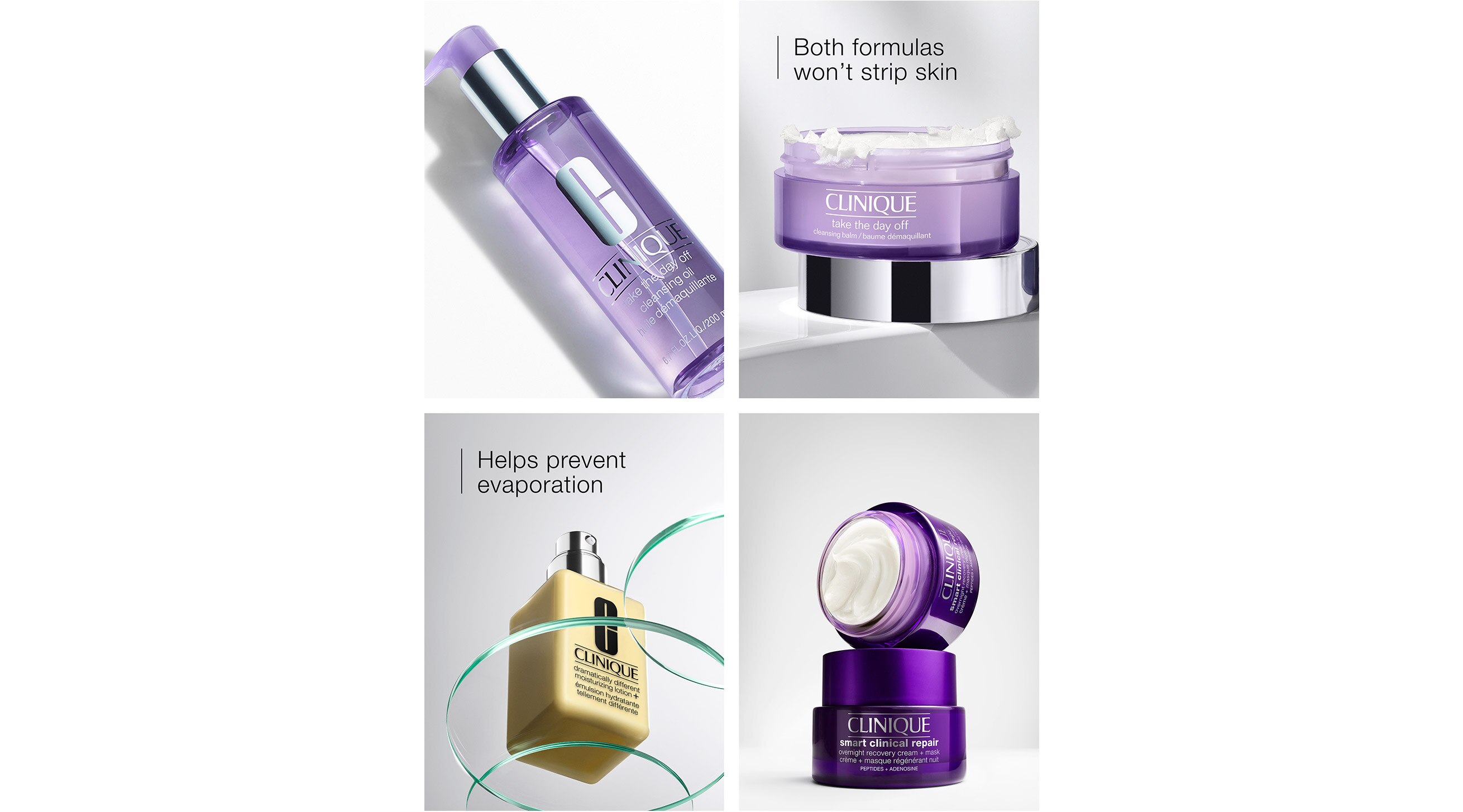When your skin feels tight, flaky, or looks dull, it can be tempting to lump all discomfort under the umbrella of "dry skin." However, not all dryness is created equal. There is a difference between dry skin, which is a skin type, and dehydrated skin, which is a temporary condition. Understanding this distinction is key to addressing your skin's needs and achieving that healthy looking, youthful, radiant glow.


Dehydrated vs. dry: The skincare difference that may surprise you
What is dry skin?
People with dry skin may naturally produce less sebum, the oil that acts as a protective barrier, which helps keep skin hydrated and supple, and they might also lack adequate water. Without sufficient oil and water, the skin can appear dull, feel tight, and be prone to flakiness, redness, or irritation. It can also make fine lines and wrinkles appear more pronounced.
Dry skin tends to be a long-term concern and can worsen with age as natural oil production slows down. A proper skincare routine can help replenish that lost moisture and restore your skin's beautiful balance.

What is dehydrated skin?
Dehydrated skin, on the other hand, is a temporary condition caused by a lack of water in the skin. Unlike dry skin, it doesn't have to do with a lack of oil. Dehydrated skin can happen to anyone, regardless of skin type—including oily or combination skin.
Dehydration often stems from external factors such as pollution, blue light from screen time, which can cause oxidative damage, weather changes, indoor heating or air conditioning, air travel, inadequate water intake, or overuse of harsh skincare products.
Dehydrated skin may feel oily and dry simultaneously. It often exhibits signs like a dull complexion, fine, dry lines (caused by dehydration rather than aging), and an overall lack of elasticity.
The good news? Dehydrated skin, like dry skin, can be addressed with lifestyle tweaks and the proper skincare regimen.
How to care for dry skin

Take The Day Off Cleansing Oil, Take The Day Off Cleansing Balm, Dramatically Different Moisturizing Lotion+, Clinique Smart Clinical Repair Overnight Recovery Cream + Mask
For dry skin, the key is to focus on replenishing oil and preventing moisture loss. A rich moisturizer is a must to help rebuild the skin's protective lipid barrier.
Skincare tips for dry skin:
- Replace harsh cleansers, which can sometimes be drying, with a gentle cleanser like Take The Day Off Cleansing Balm or Take The Day Off Cleansing Oil. Both of these are silky-smooth formulas that dissolve tenacious face makeup, oil, and impurities. Remember to follow with All About Clean™ Liquid Facial Soap.
- Look for products containing hyaluronic acid, which helps attract moisture to the skin, and incorporate a rich, nourishing face cream, like Clinique Smart Clinical Repair Overnight Recovery Cream + Mask, into your nighttime routine to help lock in moisture overnight and optimize the skin’s natural nightly repair process.
- Pair it with a good moisturizer in the morning, like Dramatically Different Moisturizing Lotion+ to help strengthen skin’s barrier.
How to treat dehydrated skin

Clinique Smart Clinical Repair Wrinkle Correcting Serum, Dramatically Different Moisturizing Gel
Dehydrated skin needs hydration. This means prioritizing skincare products that add water to the skin and help it retain that much-needed moisture.
Skincare tips for dehydrated skin:
- Start with a lightweight, hydrating serum, like Clinique Smart Clinical Repair Wrinkle Correcting Serum, which contains peptides to help strengthen and hyaluronic acid to help plump the skin. (And let's not forget its primary benefit is being anti-aging!)
- Opt for a gel-based moisturizer, like Dramatically Different Moisturizing Gel that helps deliver soothing hydration.
- Avoid harsh exfoliants or overly drying skin treatments, as they can exacerbate dehydration.
Tips for both dehydrated and dry skin

Hydration is not just about what you put on your skin—it is also about lifestyle and what you put in your body.
For dehydrated skin, ensure you are drinking enough water throughout the day. At least eight cups is a general guideline. Eating a healthy diet, managing stress, and adequate sleep can help support healthy looking skin as well.
Environmental tips

Clinique Smart Clinical Repair Broad Spectrum SPF 30, Moisture Surge 100H Auto-Replenishing Hydrator
Your environment plays a huge role in how it affects your skin.
- Use a humidifier in your bedroom or workspace to help add moisture to the air, especially during winter months.
- Avoid prolonged exposure to hot showers, which can strip the natural oils from your skin.
- Help protect your skin from the drying effects of daily dehydrators like cold weather by using a moisturizer, like Moisture Surge 100H Auto-Replenishing Hydrator with aloe bioferment and hyaluronic acid during winter.
- In summer, try a lightweight moisturizer with SPF like Clinique Smart Clinical Repair Broad Spectrum SPF 30 Wrinkle Correcting Cream to help protect skin against UV rays.
- Limit your exposure to air conditioning or heating systems that sap moisture from the air and your skin.
Combining skincare and lifestyle to see results
A tailored skincare routine combined with healthy lifestyle changes can make all the difference for optimal results. Revisit your skincare routine as the seasons change, as environmental factors can shift your skin's needs. By addressing your skin's unique challenges with targeted solutions, you will not only improve its overall healthy look but also achieve a glowing, comfortable complexion.
When building your skincare arsenal, be sure to explore hydrating, quick-absorbing serums, moisturizing creams, and nutrient-packed oils to cater to both dry and dehydrated skin.



